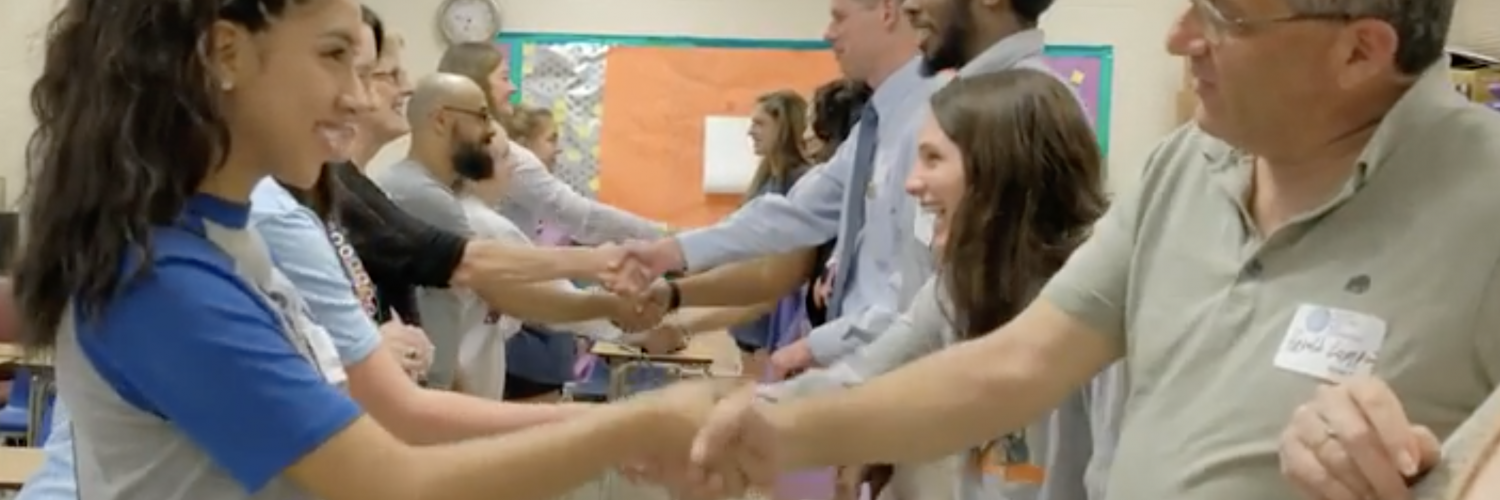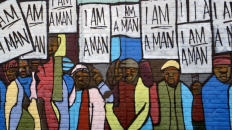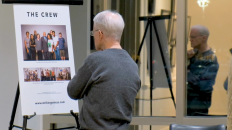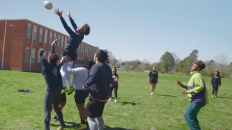Facing History and Ourselves is an organization that helps high school students recognize racism, anti-semitism, and all forms of bigotry so they can prevent it from happening in the future. It empowers students through knowledge of self and history so that they can become upstanders, people who will stand up and act for justice on behalf of their community.
This film is about a group of students who discovered the story of Ell Persons while doing research for their Facing History class at school. Dr. Marilyn Taylor, a Facing History teacher, tells us that in the one-year class the students first look honestly at what happened. They are then encouraged to see from the perspectives of others and to choose to be engaged participants in their communities. These students took ownership of their education by continuing to investigate the story. They then turned research into action by forming an organization of students across their community to make sure the story was known and remembered.
Khari, one of the founders the organization, Students Uniting Memphis (SUM), tells us the story of the lynching of Ell Persons, a black woodcutter wrongfully accused of the rape and murder of a 15-year-old teenager named Antoinette Rappel. He was beaten into a confession then captured by a mob that burned him alive then decapitated and dismembered him. Khari bravely tells us about the horrifying celebratory atmosphere of the huge crowd that gathered to watch the lynching. They got out of school, wore their church clothes and served carnival food.
Kam, another Facing History and SUM student, tells us how shocked she was to hear the story, one she had never heard even though she grew up in Memphis and even though it happened near a drive-in where her friends hang out today. She explains how learning about this lynching that no one ever talked about has made her wonder how many other stories have been hidden.
One way the students made sure the story of Ell Persons was uncovered was to teach others in the community about it. This spring, the Facing History student leadership group, including SUM and representing 15 schools, led a “teach-in” on legacy and justice for over 200 community members. They told the story of Persons, taught about the culture of lynching, then facilitated small-group, multi-generational conversations about the legacy of lynching in our country and how remembering injustices from the past can become a catalyst for social change.
Dr. Taylor and Marti Tippens Murphy, executive director of Facing History in Memphis, connected the students with the Lynching Sites Project, an interfaith network of citizens in the community who work to open hearts to racial healing by shining the light of truth on lynchings in the area. In that work they join the national effort of Bryan Stevenson and the Equal Justice Initiative to memorialize the over 4,000 known lynchings in our country between 1877 and 1950.
The students worked with the Lynching Sites Project, Shelby County Historical Commission, National Park Service, and Memphis NAACP to create one of a pair of historical markers and organize its unveiling ceremony after which they participated in an interfaith prayer ceremony commemorating the centennial of the lynching. Kam hopes the marker and learning the story of Ell Persons will help make people more open-minded and willing to talk about what happened and have the hard conversations that are necessary for healing.
Thanks to these students our community has a permanent acknowledgement of Ell Persons, remembering him not as a victim but a source of hope for a new generation. His story reminds us that we must learn from the past and that we have the power to change the world around us for the better. Thank you Students Uniting Memphis for standing up to change our world.




